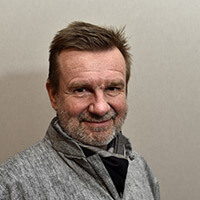Philippe Léopold-Metzger, CEO of Piaget: This is quite simply an inspired project. Rather than a museum, we preferred the idea of itinerant exhibitions on a particular theme that would explain Piaget, its history and values. After Geneva, the exhibition should move to Hong Kong before the end of the year then, in 2009, Shanghai and possibly Tokyo. We live in an era of one-upmanship, and this is especially true of retail space. At Piaget, we have always preferred to develop a network of intimate boutiques rather than megastores. We believe this allows us to maintain a more personal relationship with our customers.
Of course, it’s important to keep an open mind too. We need room in our boutiques to explain the brand and how it has evolved, in what we call the Piaget Time Galleries, and this prompted our decision to open larger premises that would provide this all-important space. We therefore extended the Geneva boutique, which opened in 1959, to three times its original size. It will showcase the first exhibition of 700 pieces from our collection. What’s important is that the exhibitions remain a living concept.
Yes, we are still in the market for our own creations although we do keep an eye on what tend to be soaring prices. That said, Piaget started making watches under its own name in 1943, and because most of the models being purchased today are pre-war mechanical watches, so mostly men’s brands, we are less exposed to inflated prices than other companies that also wish to add to their heritage collection.
We’ve called it Piaget, une belle histoire. It covers the period from 1874 to today, hence the pieces on show range from historic models to contemporary designs. We aim to stage two exhibitions a year, including some with crossover themes such as extra-slim movements, but this will also depend on how many flagship stores we have.
We have a substantial retail network in Asia and the boutiques we are opening there are consistently larger than before, meaning they have space for a Piaget Time Gallery. The Place Vendôme boutique in Paris, for example, is too small. It’s also true that Asia represents a considerable share of our business. Furthermore, an appreciation of beauty and luxury is as much a part of Asian culture as it is in Europe. I find that the term “emerging countries” isn’t suited to these regions; we should refer to them as “re-emerging” instead. But we are delighted to be staging our first exhibition in Switzerland, the brand’s home.
We’ve worked hard on the brand over the past few years with a view to the very long term. We set ourselves a certain number of tasks and have gone quite some way towards accomplishing them, in particular that of remaining true to the brand’s values. For example, we weren’t lured by the temptation to use innovative materials. Nor have we changed our products’ positioning. We are still at the top of the pyramid with our gold watches, including many jewelled models, and enormous creativity, in particular in how we incorporate hard stones into our watches. We have six in-house designers and a team of 50 people working on new creations. Piaget is more alive today than ever. This may be more complex to manage but it is certainly a huge source of satisfaction for everyone involved with Piaget.
Another of the tasks we set ourselves was to extend our product offering for men. I think that our Tourbillon Relatif, our Chronograph and our Quantième Perpetuel have shown we are capable of making watches on a par with our reputation. This has been an intense process with important implications for our site in La Côte-aux-Fées, an essential aspect of our roots. Today, 60% of the watches we sell are mechanical models which we manufacture 100% ourselves. In a word, I believe Piaget truly warrants its title as the jeweller of watchmaking. We were also among the first to believe in the importance of own-name boutiques. From the first boutiques in the early 1990s, we now have a network of 55 and we expect this figure to increase to 85 in three years’ time. I think this award comes in recognition of the efforts and achievements of recent years.
We have witnessed substantial growth over past financial years, something which the Richemont Group has recognised as it regularly quotes Piaget as one of the top-performing brands. Asia and China are strong markets and we’ve benefited from this, because we’ve invested heavily, particularly at the high end of the range, and because we have a solid presence there. The other side of the coin is that our competitors are moving into the women’s watch segment. The current financial year, which begins in April for the Richemont Group, has got off to a promising start, in particular in the United States where we recently opened two new boutiques, in California and Las Vegas. Because around two-thirds of our turnover comes from Asia, excluding Japan, the former Eastern-bloc countries and the Middle East, all of which are fast-growing markets, we haven’t felt any levelling-off. On the contrary. Sales at this year’s Salon International de la Haute Horlogerie were also much higher than before. In a word, we have every reason to feel optimistic about the coming months.











